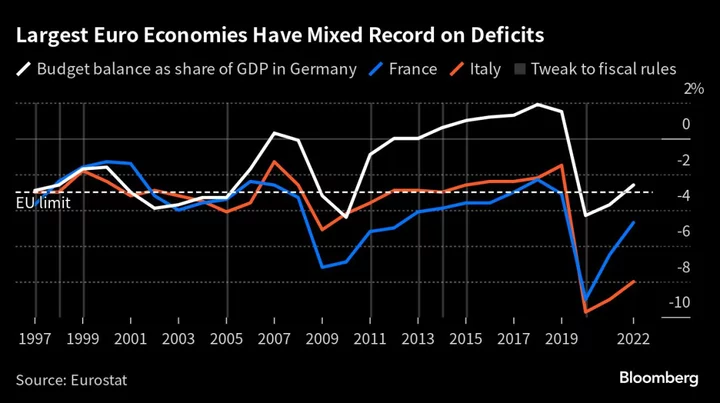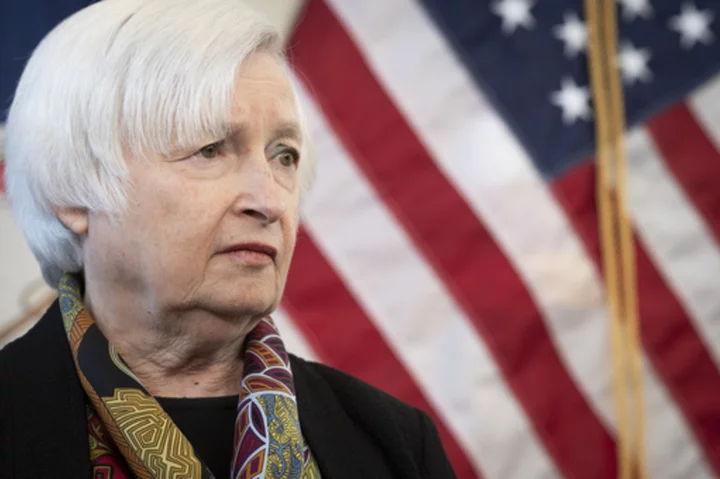A deal between the European Union’s two biggest countries will lay the foundations for updated fiscal rules, French Finance Minister Bruno Le Maire said.
“The EU needs new budget rules quickly — it’s a question of credibility,” Le Maire told reporters on Tuesday ahead of a meeting with his EU peers in Luxembourg. “We will continue to work with Christian Lindner in the coming weeks to try to reach a Franco-German accord that could serve as a basis for a wider deal.”
The fiscal rulebook that binds the euro zone’s eclectic economies is in need of a root-and-branch overhaul after public debt surged during the Covid pandemic. But governments with competing strategic visions are struggling to agree on how exactly to go about it.
German Finance Minister Lindner declined to elaborate on Le Maire’s suggestion of a bilateral pre-agreement beyond saying that the two countries continue to work “on common ground.”
He reiterated earlier warnings that a 3% deficit-to-GDP ratio is a maximum, not a goal.
“This is not the target — it is the upper limit,” he told reporters. “So under normal circumstances the deficit has to be below 3% and we are suggesting a safety margin.”
Le Maire and Lindner both said they are confident that a deal will be made by year end, with the next discussion expected at a meeting of finance ministers in early November in Brussels.
Similarly, Spain’s Nadia Calvino, who holds the rotating presidency of the gatherings of EU finance chiefs, said the aim is to table a legal proposal at the next Ecofin so there can be a new deal by the end of 2023.
“Good progress has been made at the technical level,” Calvino said.
--With assistance from Jorge Valero.
(Updates with Germany’s Lindner starting in fourth paragraph.)
Author: William Horobin, Kamil Kowalcze and Alessandra Migliaccio









